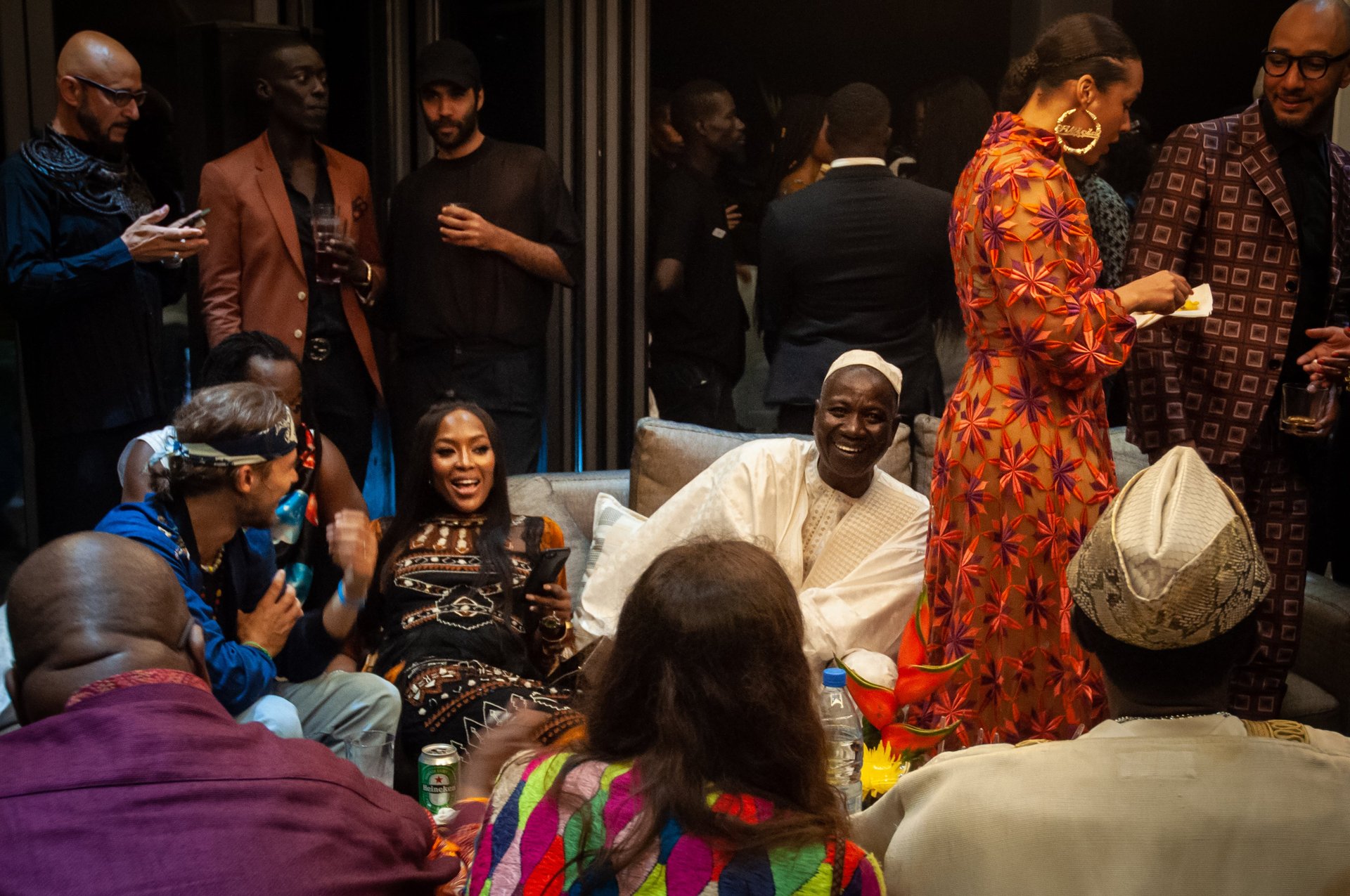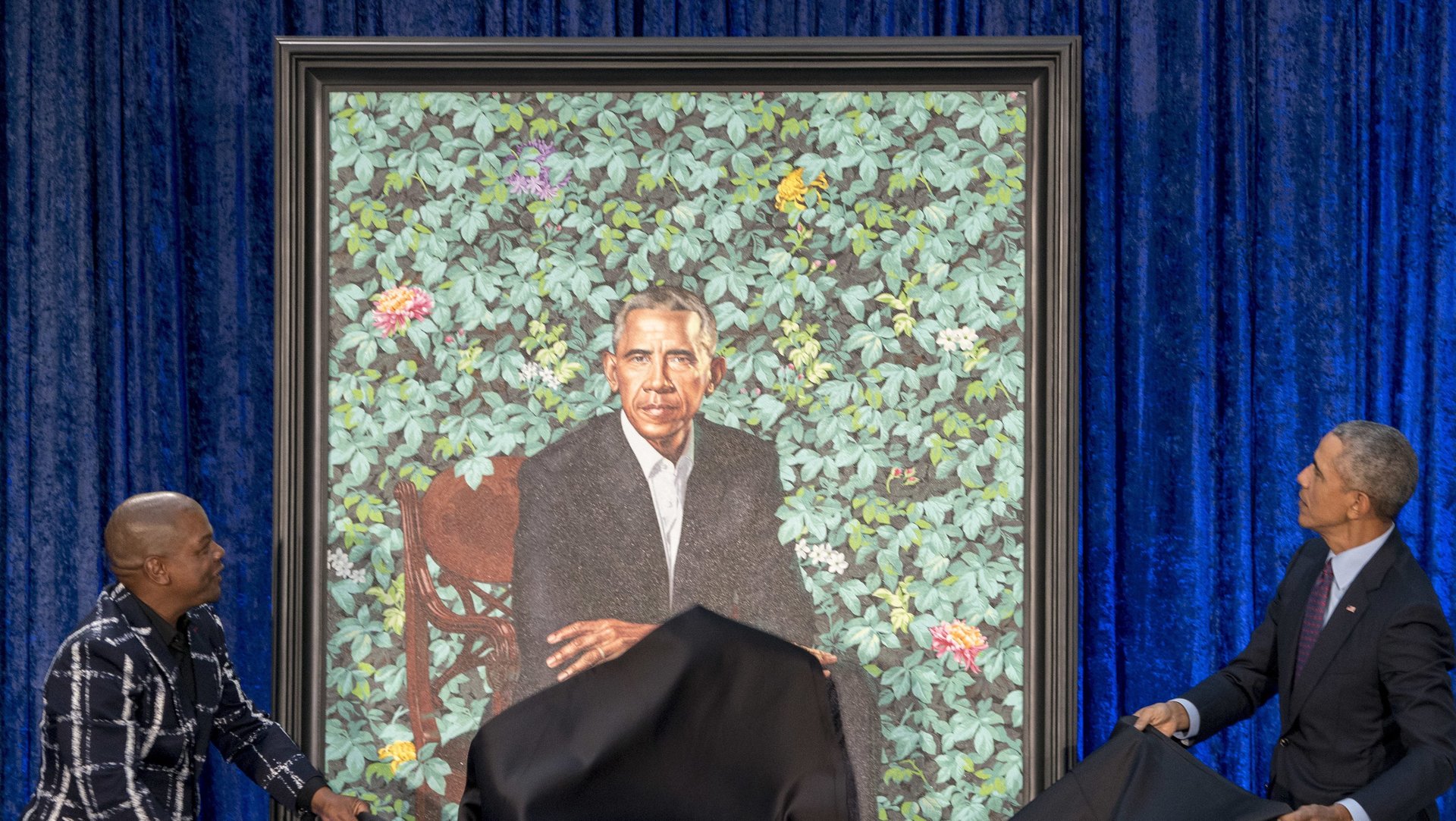Obama’s portrait painter is making a bet on African artists with a Dakar residency program
Still riding the buzz from his 2018 portrait of former president Barack Obama, Kehinde Wiley is taking the next step in his career with the launch of an artist residency program in Dakar, Senegal he hopes will foster a positive relationship between Africa and the West.


Still riding the buzz from his 2018 portrait of former president Barack Obama, Kehinde Wiley is taking the next step in his career with the launch of an artist residency program in Dakar, Senegal he hopes will foster a positive relationship between Africa and the West.
The program, called Black Rock Senegal, seeks to facilitate cross-cultural collaboration; artists, filmmakers and writers from around the world will have the opportunity to travel the country, immerse themselves in Senegalese culture and learn from local artisans.
“We receive these sort of toxic images of war and disaster and malady that it’s oftentimes difficult to see it on a very personal level,” he said.
Wiley hopes residents come away with a deeper understanding and appreciation for “the dynamic, complicated, hopeful, youthful nature of what modern Africa feels like,” said Wiley. “I want to be able to share that, because I know what that is and it’s been going on for a long time, but it’s such a secret to so many people in the West.”

Wiley’s own relationship with Africa began in 1977 when he went looking for his estranged father in Nigeria. His plane stopped in Dakar, and he fell in love.
Like many African Americans, he said, he yearned for an authentic connection to the continent, and began forming friendships with locals. The quick, eight-hour direct flight from New York, Wiley’s other home base, made his decision to settle in Dakar all the more easier.
Wiley has spent the last six years developing Black Rock, and it shows. The seaside compound, built in part by a Senegalese architect and interior designer, boasts three townhouse-style homes where residents will live and work, complete with studio space, an elegant garden and solar panels.
At Black Rock’s May 26 launch party, guests dressed in an eclectic mix of traditional Senegalese robes, Western haute couture and African inspired designs, danced around the compound’s infinity pool, which appeared to drip right into the ocean.
Wiley stood beneath Black Rock’s 20-foot wooden doors in a green and gold boubou, greeting guests such as Alicia Keys and Naomi Campbell.

The doors, Wiley said, symbolize his response to Black Rock’s proximity to Gorée Island, which was once the largest slave-trading hub on the African coast. While Gorée was once the door of no return, his are an invitation – an invitation to artists not just of African descent, but to artists from around the world, “to see themselves through the eyes of this place and through the eyes of this community,” he said.
In doing so, “Africa becomes the fulcrum point through which artists look inward and outward.”
Some 15 residents will be selected by a committee over the next few weeks to take part in one, two or three month-long stays.
Sign up to the Quartz Africa Weekly Brief here for news and analysis on African business, tech and innovation in your inbox